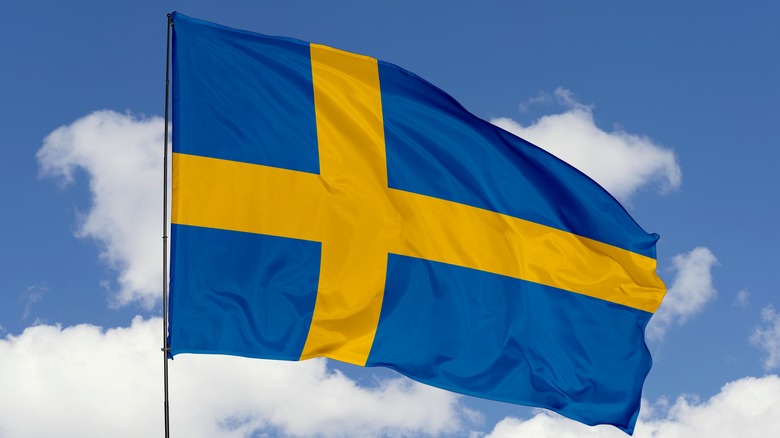Why Coffee Breaks Are So Important To Swedish Culture
Tea time is a well-known part of British culture. Traditionally, per NPR, there are three social tea times: elevenses — a work break with tea and a light snack at 11 a.m., of course; afternoon tea — typically served between 3 and 4 p.m. with the fancy teacups, pastries, and sandwiches; and high tea — taken after work with more filling foods like meat and pies.
While the Brits are known for their tea breaks, you might not know that Swedes are known for their coffee breaks. In Sweden, people traditionally take a coffee and cake break called a fika. In a story by the BBC, fika is said to be entrenched in Swedish culture. In many companies, it's a required part of the workday. You've heard about mandatory meetings. But what about a mandatory coffee break? Even Swedish giant Ikea calls the daily break a "national institution." So why is fika such an important part of Swedish culture?
More than just coffee
According to Visit Sweden, the origins of the tradition started with the coffee itself. It is believed that the syllables were reversed in the word kaffi to get the word fika. Kaffi is an old spelling of coffee, which was first introduced to the country in the 18th century. But it has grown to be more than that. Once pastry shops started popping up in Sweden in the 19th century, baked goods and socializing became a part of the tradition.
But it hasn't always been so popular with everyone in Sweden. Scandinavian Standard explains that coffee has been banned five times in history. King Gustav III hated it so much that he banned it and even started an experiment to try to prove its negative health effects of it in the 18th century. Yet the fika lives on. Whether done during the week with coworkers or on the weekend with friends, the coffee and cake break is taken multiple times a day. It's more than just stepping out for a few minutes to get a jolt of caffeine and a sweet treat. The cultural ritual is one of slowing down and being social. We could all use a break or two every day, so maybe we should just take a page out of the Swede's book.

